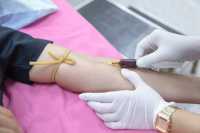Author Interviews, Cost of Health Care, Electronic Records / 20.03.2020
Best Practice Alerts from Electronic Records Can Reduce Redundant Lab Testing
MedicalResearch.com Interview with:
Rohit Bishnoi, M.D.
Division of Hematology and Oncology
Department of Medicine
University of Florida
Gainesville, FL
MedicalResearch.com: What is the background for this study?
Response: National Healthcare expenditure was $3.6 trillion in 2018 and 17.7% of Gross Domestic Product. Redundant laboratory testing is one part of this problem that is more pronounced in hospitalized patients as they are often seen by multiple physicians from the time of admission till discharge. This added burden on the US health care system leads to increased costs, decreased patient satisfaction, and unnecessary phlebotomy. It also leads to iatrogenic anemia over time and unnecessary transfusions. The Choosing Wisely initiative recommendation from the Society of Hospital Medicine, Society for the Advancement of Blood Management, and the Critical Care Societies Collaborative have recommended avoiding repetitive labs.
As one of the physicians in the division of hospital medicine at the University of Florida (UF) Health Shands hospital, we encountered this problem frequently where a patient will get multiple HbA1c or lipid profiles or iron studies during the same hospital stay without any clear clinical indication. Most often these tests were ordered by different physicians seeing the same patient and not realizing that either the test has already been ordered or sometimes it is related to practice pattern of physicians. We often heard complaints about this from our nursing and laboratory staff and, most importantly by patients themselves. (more…)


